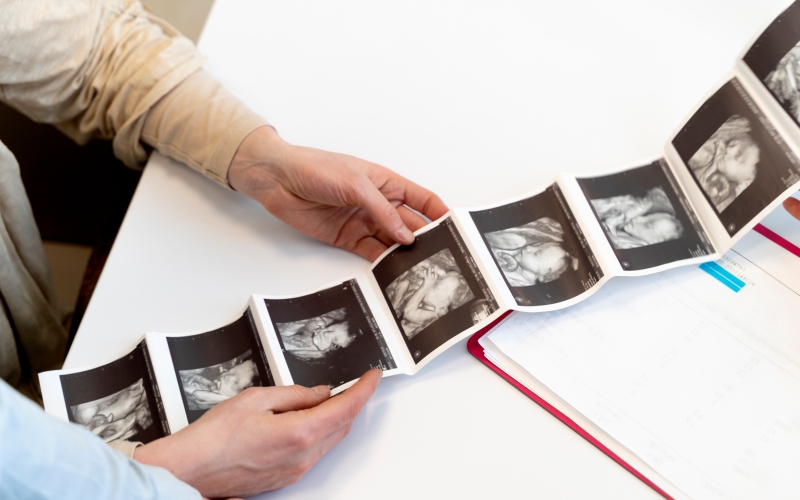Author: Dr. Anuja Thomas MBBS. DGO, DNB (OBGY)
Consultant: Obstetrician and Gynaecologist at Motherhood Hospital Kharghar
As a leading healthcare provider, we at Motherhood Hospital understand the unique challenges that expecting mothers face, especially morning sickness and nausea. For many expecting mothers, these uncomfortable symptoms can make it challenging to maintain a healthy pregnancy diet, which is crucial for the well-being of both mother and baby. However, with the right strategy, nausea during pregnancy can be effectively dealt with.
What Is Nausea During Pregnancy?
Nausea during pregnancy, commonly known as morning sickness, affects many expecting mothers. Although the exact cause of morning sickness is still unknown, hormonal changes, blood sugar fluctuations, and metabolism changes are believed to play a role.
Causes and Symptoms of Nausea During Pregnancy
Morning sickness symptoms may include nausea, vomiting, and general discomfort, and typically occur during the first trimester of pregnancy. However, some women experience morning sickness throughout their entire pregnancy.
It is essential to note that morning sickness is a normal part of pregnancy and does not necessarily indicate a problem with the pregnancy. However, severe or persistent nausea and vomiting should be brought to the attention of a healthcare provider.
By understanding the causes and symptoms of morning sickness, it is possible to alleviate discomfort. In the following sections, we will explore the top foods that can help alleviate nausea during pregnancy, provide tips for eating habits and meal planning.
5 Foods to Include in Your Pregnancy Diet to Combat Morning Sickness
When it comes to pregnancy, morning sickness can make you feel uncomfortable and interfere with your daily routine. Fortunately, certain foods can help alleviate the symptoms of morning sickness and make you feel better.
Here are some of the best foods to include in your pregnancy diet to combat morning sickness:
- Ginger: Ginger is a popular natural remedy for nausea and has been found to be effective in combating morning sickness. You can include ginger in your diet by adding it to your tea, smoothies, or as a flavoring agent in your cooking.
- Peppermint: Peppermint is another natural remedy for nausea that can help alleviate morning sickness. You can include peppermint in your diet by drinking peppermint tea, chewing peppermint gum, or using peppermint oil as a flavoring agent in your cooking.
- Lemon: Lemon is a great source of vitamin C and can help alleviate nausea. You can add lemon to your water, tea, or even your meals to help combat morning sickness.
- Plain crackers: Plain crackers are an excellent source of carbohydrates that can help prevent nausea. You can snack on them in between meals or before getting out of bed in the morning.
- High-protein snacks: Eating small, frequent meals throughout the day can help prevent nausea. High-protein snacks like nuts, cheese, and yogurt can help you feel full and satisfied while also preventing morning sickness.
- Bananas: As banana is rich in vitamin B6 and potassium, consuming banana on regular basis can help you reduce stress during pregnancy.
Healthy Eating Habits and Meal Planning Tips for a Nausea-Free Pregnancy

Maintaining healthy eating habits during pregnancy is essential, as it impacts not only the mother’s health but also that of the growing baby. In this section, we provide expert advice on healthy eating habits and meal planning for a nausea-free pregnancy. These tips can help you combat morning sickness and promote a healthy pregnancy journey.
Firstly, it is essential to avoid skipping meals, as this can worsen nausea. Instead, opt for small, frequent meals throughout the day, including nutrient-dense foods such as fruits, vegetables, whole grains, and lean proteins. It is also important to stay hydrated by drinking plenty of water, coconut water, or herbal teas.
We also recommend that you avoid foods that are high in fat, sugar, and salt, as they can worsen nausea and negatively impact your overall health. Additionally, it is essential to avoid foods that are known to be harmful during pregnancy, such as raw or undercooked meat, fish with high levels of mercury, and unpasteurized dairy products.
Meal planning can also be helpful in ensuring a healthy pregnancy diet. Consider planning meals in advance and keeping healthy snacks on hand to prevent hunger and avoid reaching for unhealthy options. Consult with our nutritionists to develop a customized meal plan that works for you and your baby.
Here are other useful tips that you can follow to alleviate nausea:
- Drink plenty of fluids, such as water, herbal tea, or diluted juice, to stay hydrated.
- Avoid spicy, fatty, or fried foods, which can exacerbate nausea.
- Try to eat protein-rich foods, such as chicken, fish, eggs, or beans, which can help stabilize blood sugar levels and keep you feeling full for longer.
- Don’t skip meals, as an empty stomach can worsen nausea
Debunking Common Myths and Misconceptions About Nausea During Pregnancy
While it is natural for expecting mothers to seek advice and guidance on how to navigate the ups and downs of pregnancy, it is important to distinguish fact from fiction. Unfortunately, there are many myths and misconceptions surrounding nausea during pregnancy that can be not only misleading, but potentially dangerous for both mother and baby.
Let’s debunk some common myths and provide accurate information to help you make informed decisions.
Myth: Morning sickness only happens in the morning
Fact: Morning sickness can occur at any time of the day, not just in the morning.
Myth: Nausea during pregnancy means you are having a girl
Fact: There is no scientific evidence linking nausea during pregnancy to the gender of the baby.
Myth: Cravings are a reliable indicator of what your body needs
Fact: Cravings are often influenced by psychological and social factors, and not necessarily an indicator of what your body needs.
Myth: Nausea is always a sign of a healthy pregnancy
Fact: While some nausea during pregnancy is normal and can be a sign of a healthy pregnancy, severe and persistent nausea may require medical attention.
Myth: Ginger is the only natural remedy for morning sickness.
Fact: While ginger can be helpful for some women, it may not work for everyone and there are other natural remedies that can also be effective in alleviating nausea during pregnancy.
Myth: Pregnant women should eat for two
Fact: Pregnant women only need an additional 300-500 calories per day, depending on their pre-pregnancy weight.
Conclusion
It is also important to maintain a balanced and healthy pregnancy diet to combat morning sickness. At Motherhood Hospital, we recommend that pregnant women include plenty of fruits, vegetables, whole grains, and lean proteins in their diet. Consult with our nutritionists and healthcare professionals at Motherhood Hospital to create a meal plan that works for you and your baby, ensuring that you are getting all the nutrients you need for a healthy pregnancy. We offer comprehensive care for pregnant women and are committed to providing the best possible care to ensure a healthy pregnancy journey for both you and your baby.
At Motherhood Hospitals, we have a team of experienced supers specialists backed by the latest infrastructure and facilities. We have the best nutritionist in Kharghar, Mumbai. We are experts in handling complex deliveries, gynaecological, and other surgeries including a range of laparoscopic surgeries.
Do take an appointment with the best maternity hospital in Kharghar, Mumbai, at a centre closest to you. Meet with our doctors who will carry out the required investigations, diagnose the issue and recommend the most appropriate treatment, enabling you to lead an active life.
If you wish to get in touch with Dr. Anuja Thomas, please book your appointment here.
FAQ’s:
- What causes morning sickness during pregnancy?
While the exact cause of morning sickness is unknown, it is believed to be related to hormonal changes in the body. - What are the common symptoms of morning sickness?
Common symptoms of morning sickness include nausea, vomiting, dizziness, fatigue, and food aversions. - What are some effective natural remedies for nausea during pregnancy?
Some effective natural remedies for nausea during pregnancy include ginger, peppermint, lemon, and high protein snacks. - What are the best foods to include in a pregnancy diet to alleviate morning sickness?
Ginger, lemon, whole grains, high protein foods like lentils, yogurt and nuts, and foods rich in vitamin B6 like bananas, spinach and sweet potatoes are some of the best foods to include in a pregnancy diet to alleviate morning sickness. Additionally, consuming small, frequent meals throughout the day and staying hydrated can also help alleviate nausea during pregnancy. - Can severe or persistent nausea during pregnancy be a cause for concern?
Severe or persistent nausea during pregnancy, especially accompanied by other symptoms such as dehydration or weight loss, can be a cause for concern and should be discussed with a healthcare provider.


 Toll Free Number
Toll Free Number
















